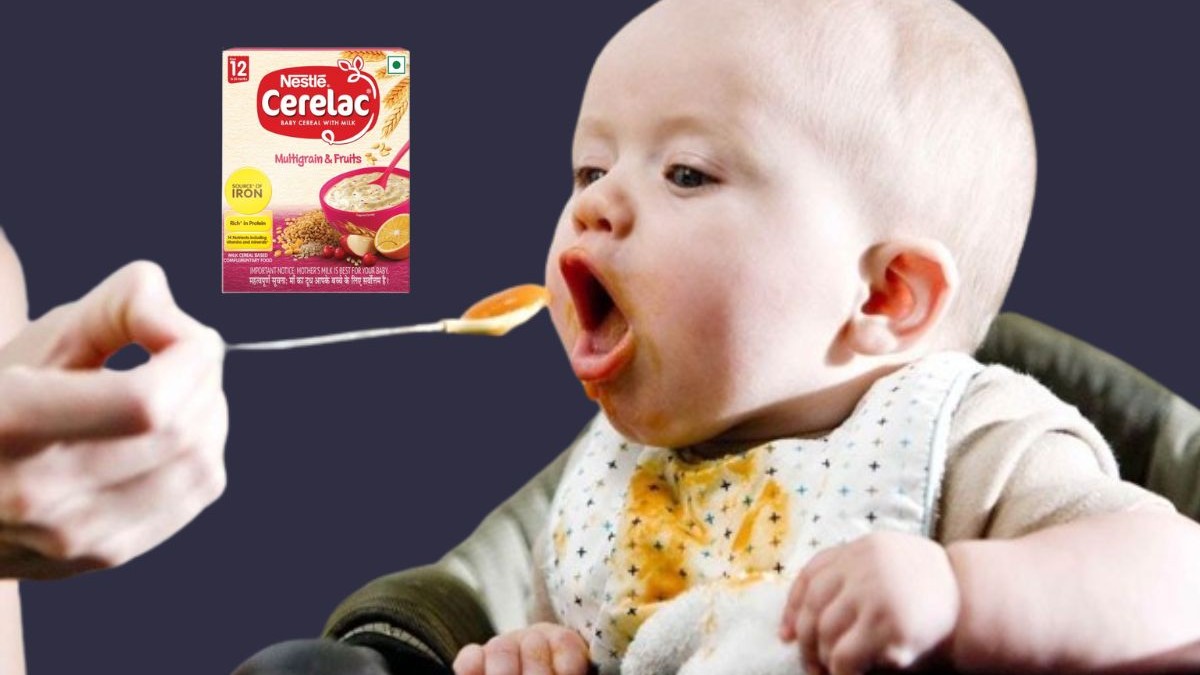[ad_1]

Nestle Adds 3g Sugar in Cerelac: Nestle company, which was in controversies regarding Maggi, is once again in the headlines. The reason is the baby product Cerelac. Nestle’s two best-selling baby-food brands in India have been found to contain significant amounts of sugar, according to an investigation by Public Eye. Whereas in United Kingdom, Germany Switzerland and other developed countries the same products are sugar free. It clearly means that Nestle is discriminating between developed and developing countries, but is also playing with the lives of children.
Sugar found in Asian, African and Latin American countries
The sales of Nestle company’s products are very high in India. Nestle is the largest company in the world in making products for children. The company adds sugar and honey to infant milk and cereal products in several countries, the report said. This violates international guidelines aimed at preventing obesity and chronic diseases. These violations were found only in Asian, African and Latin American countries.
Shame on @Nestle: In India, the Swiss giant sells #baby food with almost 10% added sugars (and total 25% sugars), where scientists clearly warn to feed sugar products to infants & toddlers https://t.co/yAyIBns6vV pic.twitter.com/6Yc8lgurzi
— Petra Sorge (@petrasorge) May 2, 2022
3 grams of sugar in India, sugar free in Britain and Germany
The results revealed that all 15 Cerelac baby products in India contained about 3 grams of sugar. The same product is being sold without added sugar in Germany and Britain, while in Ethiopia and Thailand it contains about 6 grams of sugar, the study said.
The amount of added sugar is often not disclosed in the nutritional information available on the packaging of these types of products.
The report said Nestle prominently highlights the vitamins, minerals and other nutrients found in its products, but is not transparent when it comes to added sugar.
Nestle to sell Cerelac products worth over Rs 20,000 crore in India in 2022 Experts say adding excessive sugar to baby products is dangerous.
Scientist expressed concern
Rodrigo Viana, an epidemiologist and professor in the department of nutrition at the Federal University of Paraíba in Brazil, said this is a matter of great concern. Sugar should not be added to foods given to infants and young children as it is unnecessary and highly addictive.
He said that children become accustomed to the sweet taste and start seeking out sweeter foods. Due to which a negative cycle starts. The risk of nutrition-based disorders increases as children grow up. These include obesity and other chronic non-communicable diseases, such as diabetes or high blood pressure.
The spokesperson gave this clarification
Nestle India spokesperson claimed that they comply with all local regulations and international standards. It has reduced added sugars in its baby cereal range by 30% over the last five years. Nestle India has reduced added sugars in our infant cereal portfolio (milk cereal based complementary foods) by 30% over the last five years, the spokesperson said.
WHO warned
The World Health Organization (WHO) has warned that if small children come in contact with sugar, they develop an addiction of preferring sugar products throughout their life. This increases the risk of obesity and many other diseases. In 2022, WHO had asked to ban added sugar and sweeteners in food products for children.
[ad_2]
